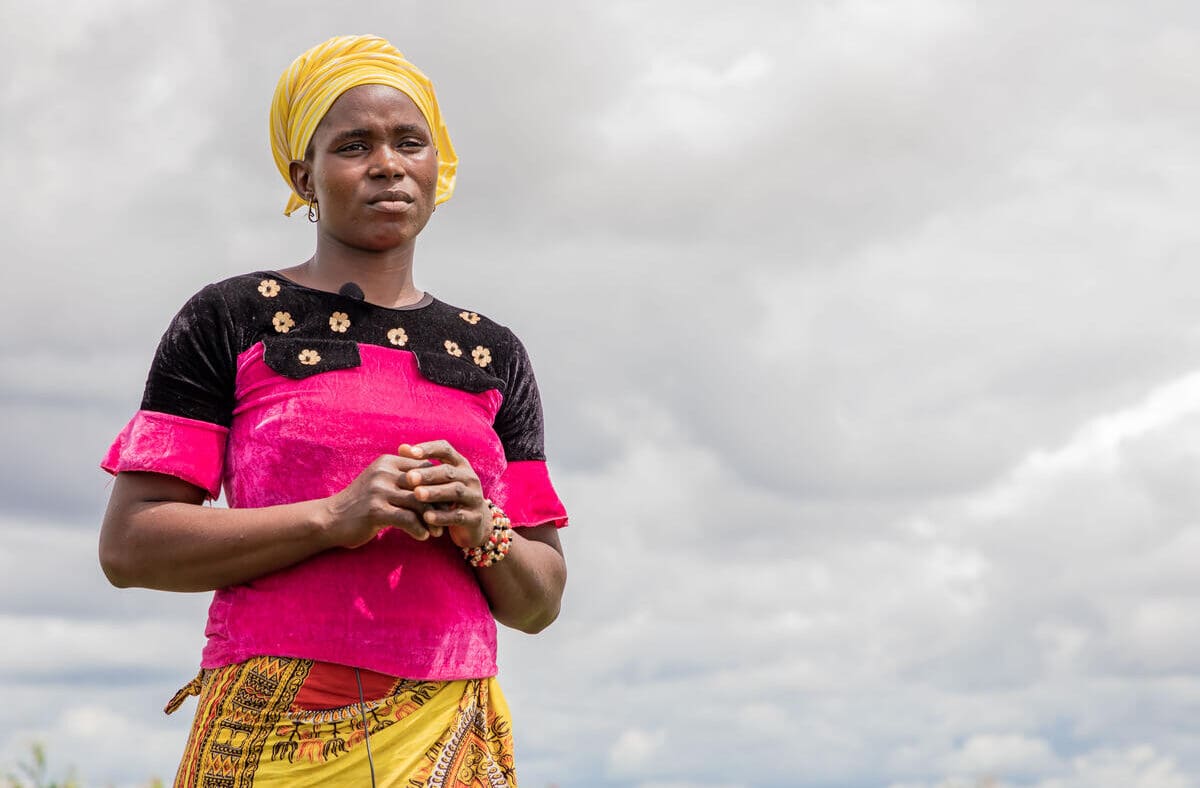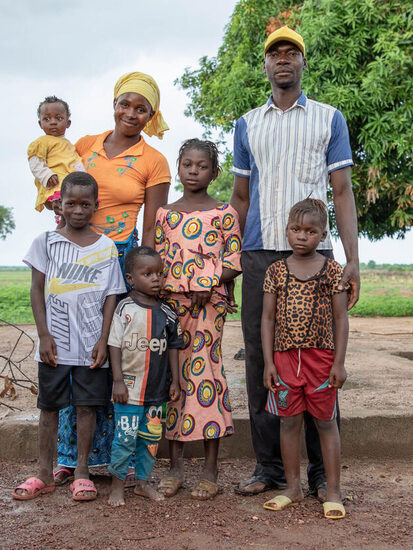
GUINEA
Where Women Go Hungry
Although rich in natural resources, Guinea faces major socioeconomic challenges. The poverty rate is alarming, and women especially are going hungry. Meanwhile, devastating natural disasters make things worse – but we’re on the ground helping build more sustainable food systems for the people who need them most.
population of Guinea
of people live in poverty
of children under 5 suffer from stunting

RURAL FARMERS need food
Rural communities are particularly vulnerable to hunger, and among those affected by severe food insecurity, more than 70 percent are small farmers. These farmers make up a majority of the country’s poor and have poor access to seeds and fertilizers, production and processing equipment, storage facilities, basic infrastructure and affordable financial services. Although women play a crucial role in agriculture, particularly in food production, they have difficulties in accessing land and productive resources, education, formal employment and income-generating activities. Their work is often unpaid and undervalued. Women make up 60 percent of people suffering from chronic hunger, and the majority of rural people living in poverty.
Guinea also suffers from recurring, devastating natural disasters like flooding and bush fires, making people even hungrier.
WFP’S Work in GUINEA
We’ve been in Guinea since 1964, feeding people during and in the aftermath of crises. WFP works with the Government to improve children’s access to education, enhance nutrition, build sustainable food systems and community resilience to shocks whilst improving farmers’ access and livelihoods. Here’s how:

To improve attendance and retention rates and encourage parents to send children—especially girls—to school, we provides nutritious school meals to 2,119 and 150,000 children in 37 pre-primary and 1,216 primary schools respectively. 8,000 girls in sixth grade (the last year of primary) receive take-home rations. The program integrates the home-grown school feeding model, promoting local production for nutritious school meals.


During crises, WFP provides timely and adequate food assistance to meet the immediate food needs of those affected. In August 2019, following flooding in the prefecture of forest region Guéckédou, which caused great difficulty for already vulnerable families, devastating crops and livestock, WFP provided 58.5 metric tons of rice, worth $21,486, to 3,000 affected people.


We provide life-saving nutritious food to vulnerable people, including children aged under 5, pregnant and breastfeeding women, people living with HIV/AIDS and TB and their more. Improved food security and nutrition prevents and reduces maternal malnutrition, mortality risk, low birth weight rates and malnutrition in children under 5. It also contributes to improving the health status of HIV and TB clients under treatment. WFP also supports the Government’s nutrition-sensitive programs and activities.


We’re supporting small farmers and vulnerable communities through our integrated Food Assistance for Assets (FFA) and Smallholder Agricultural Market Support (SAMS) programs, working to improve farmer productivity and revenues, build their resilience to shocks including climate change, and increase their access to profitable and stable agricultural markets by linking them to the school feeding programs. And WFP works closely with the Government, UN sister agencies and national NGOs to build sustainable food systems and further strengthen national resilience capacities.


To help strengthen Government capacities in the design and implementation of sustainable programs and ensure national ownership before an eventual handover, WFP provides institutional technical and financial support through formal partnership with various Ministries including the Ministry of Education, Health, Agriculture, Commerce, Decentralization and Cooperation.

Help Save Lives by Sending Food
You can help deliver food to vulnerable populations in Guinea and other countries by donating to WFP.
What’s happening in GUINEA?
Read the latest stories of hunger and hope.
